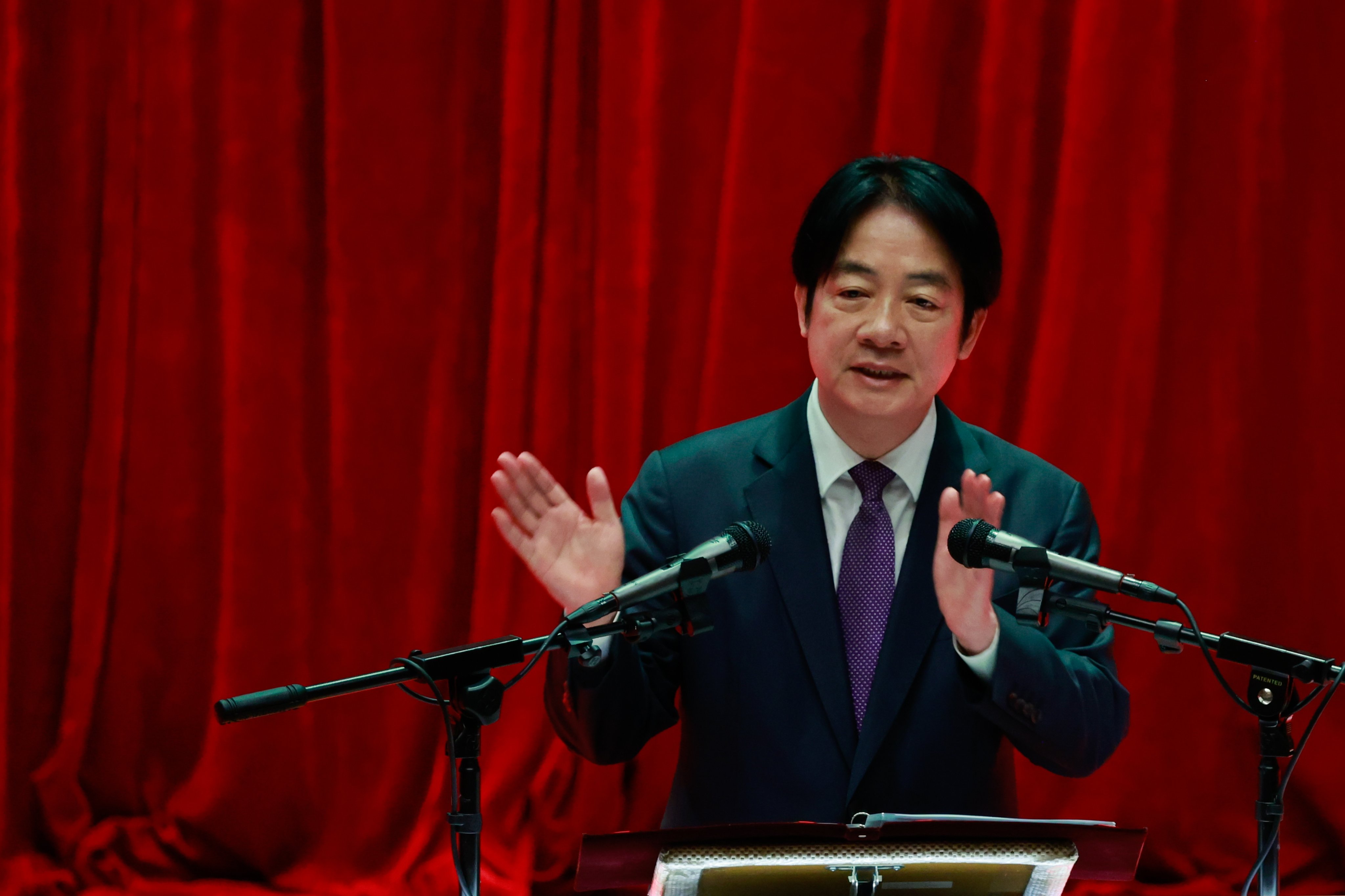By Lawrence Chung
Copyright scmp

Taiwanese leader William Lai Ching-te’s approval rating has taken a sharp blow, with more than 60 per cent of eligible voters expressing disapproval of his handling of cross-strait relations, according to a new survey.
Even as Beijing’s military pressure intensified, most respondents said the two sides should keep talking – a verdict that has underscored mounting unease with Lai’s leadership.
The annual cross-strait relations survey released by the United Daily News in Taipei on Monday found dissatisfaction with Lai’s performance on cross-strait policy had surged to 63 per cent, up 20 points from the same time last year. Lai’s positive ratings, meanwhile, have collapsed from 44 per cent to just 26 per cent.
The results mark a dramatic shift in public opinion a little more than 16 months into Lai’s term, with voters increasingly doubtful about his ability to manage the island’s most sensitive relationship – with the mainland.
Party loyalties showed clear divisions in the survey. More than 90 per cent of Kuomintang (KMT) supporters – Taiwan’s main opposition force – and those of the smaller Taiwan People’s Party (TPP) said they were dissatisfied.
Among backers of Lai’s ruling Democratic Progressive Party (DPP), 67 per cent still expressed approval, but more than a quarter were critical. Independents, who often swing elections, leaned negative: only 23 per cent approved, while 58 per cent disapproved.
Lai’s rhetoric has been a particular flashpoint. Since taking office in May last year, he has repeatedly declared that the two sides of the Taiwan Strait “are not subordinate to each other” and described Beijing as a “hostile foreign force”.
Such remarks have infuriated Beijing, which views the island as part of China to be reunited by force if necessary. It has branded Lai a “pro-independence separatist” and a “troublemaker”, ramping up military pressure by staging large-scale war games encircling the island.
Most countries, including the United States, do not see Taiwan as an independent state, but many are opposed to a change of the status quo by force.
The poll showed that 63 per cent of respondents thought Lai’s language had harmed relations, while only 18 per cent saw it as beneficial.
An overwhelming 88 per cent of respondents insisted communication channels with Beijing must remain open despite growing military pressure from the People’s Liberation Army, compared with just 8 per cent who thought dialogue unnecessary. Even within the DPP, three-quarters of supporters agreed that talks were vital.
The survey also pointed to a hardening scepticism towards the US. When asked whether Washington would send troops to defend Taiwan in a conflict, 49 per cent of respondents said no – a sharp reversal from last year, when nearly half thought it would intervene. Only 41 per cent said they had confidence in US military support.
Regarding a demand from US President Donald Trump that Taiwan should pay for American defence against Beijing, 71 per cent of respondents disagreed, while just 22 per cent agreed.
Overall, two-thirds of those surveyed said the island should not tilt towards either Washington or Beijing.
The share of respondents favouring closer alignment with the US fell to 18 per cent from 21 per cent a year earlier, while support for stronger ties with mainland China edged up four points to 12 per cent.
Even among DPP supporters, a slim majority – 51 per cent – said they preferred to be equally distant from both sides, compared with 46 per cent who leaned towards the US. Among opposition supporters and independents, support for maintaining equal distance reached at least 70 per cent.
One analyst said the shift reflected a rise in “strategic doubt” towards Washington, particularly as Trump continued to press Taipei to shoulder more of the defence burden while levying heavy tariffs on Taiwanese imports.
“This indicates the public remains cautious about relying on great-power intervention for peace,” said Yen Chen-shen, a researcher at National Chengchi University’s Institute of International Relations in Taipei.
Preventive defence spending, he argued, no longer reassured most Taiwanese. “No matter how much money is spent to boost deterrence, it is hard to match Beijing’s military strength,” he said, adding that many people therefore doubted whether the US would act.
Meanwhile, in a reminder of how fraught official contacts remain, the Taipei City Government on Monday announced it would postpone this year’s Taipei-Shanghai Twin-City Forum, originally scheduled to run from Thursday to Saturday in Shanghai.
Deputy mayor Lin Yi-hua cited incomplete technical reviews and coordination issues, stressing that “hosting it well is more important than hosting it early”.
Two planned memorandums of understanding, she said, still awaited final clearance from both sides. A new date will be announced once confirmed.